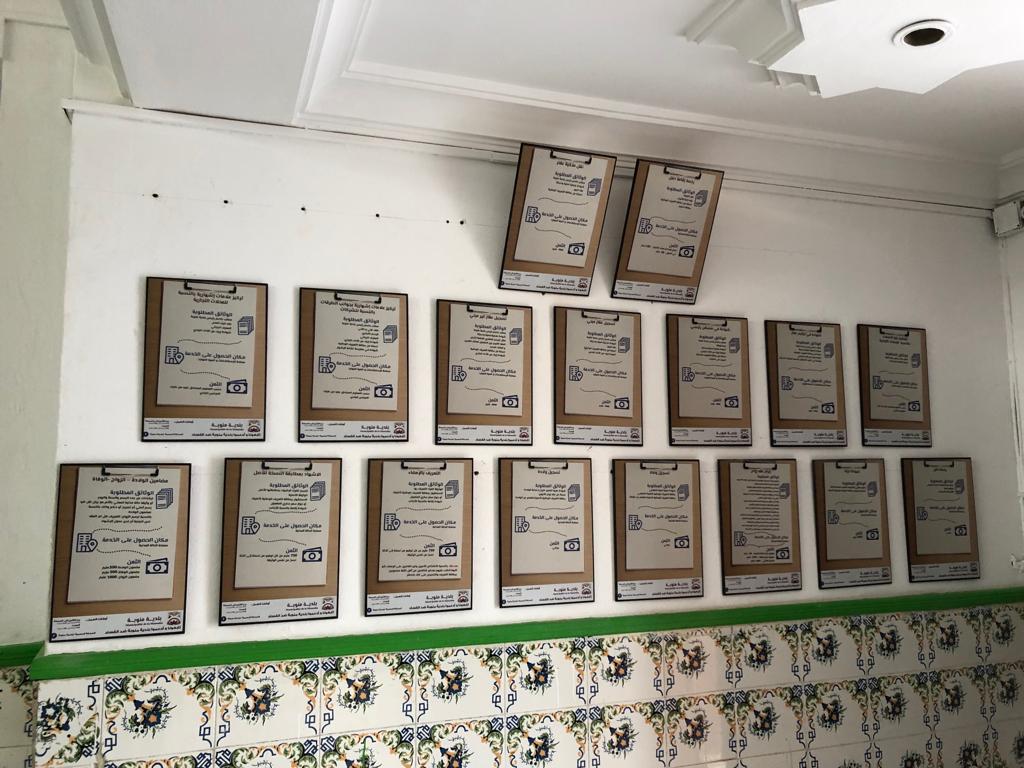Promoting Social and Behavioral Change in Tunisia to Fight Corruption

Despite isolated local victories implementing anti-corruption efforts, corruption in Tunisia continues to be perceived as a top citizen concern.
As of February 2019, respondents of the latest IRI poll considered corruption as the third largest problem in Tunisia, after the economic and financial crisis, and unemployment. Sixty-four percent of respondents also reported that corruption would be very important in determining their votes for the next national elections.
The International Republican Institute (IRI) has been working to fight corruption in the Tunisian municipality of Manouba since 2017. After two years of collaboration among local, national and international actors, Manouba is better equipped to address shortcomings in government transactions and the interaction with citizens, which IRI identified as the main drivers for vulnerabilities to corrupt practices such as bribing officials or using intermediaries.
In July 2017, IRI met with local actors, civil servants, youth activists, private sector representatives and appointed municipal officials to discuss the state of corruption in Manouba, Tunisia. Citizens were unhappy about quotidian administrative requirements, such as notarization of documents and authorization for construction permits, and perceptions of corruption were pervasive.
Through the Vulnerabilities to Corruption Approach (VCA), IRI identified that limited trust in government contributes to citizen dissatisfaction and perceptions of widespread corruption. The VCA is a diagnostic tool that allows IRI to assist local stakeholders in detecting areas that are susceptible to corruption. In Manouba, both workers and citizens identified the lack of communication between residents and the municipality as a key driver behind mutual distrust and a lack of clear information about municipal services.
To address this disconnect, the municipality of Manouba and Tunisia’s National Anti-Corruption Agency (INLUCC) agreed on an action plan that piloted a social behavioral change (SBC) campaign. In Georgia, the government saw success pairing their anti-corruption reforms that followed the 2003 Rose Revolution with a social marketing and public relations campaign to elicit change in societal perception on the previous culture of corruption. These included the revamping of traffic police uniforms and remodeling of police buildings to include windows and open spaces. The measures signified transparency and a shift in traditional norms. Ultimately, as a result of this communication campaign, Georgia saw increased citizen buy-in for government reforms and trust in institutions.
Modelled after Georgia’s and other countries’ successful interventions, IRI partnered with Magenta Consulting to implement a SBC campaign in Manouba. Based on citizen feedback gathered through focus groups discussions, the campaign featured three different production items. First, the creation of a total of 14 videos to socialize and humanize elected municipal officials and introduce municipal services. Second, the development of infographics, billboards and creative material on historical heritage in order to display clear and easy information on public service provision and publicize anti-corruption efforts. Lastly, the development of a social media package to rebrand and ensure sustainability of the municipality’s online communication strategy.
The municipality ran the campaign for two months. Online monitoring showed that citizens were responsive, and actively engaged on Facebook posts relevant to their daily lives. For example, the three infographics on public services solicited an average of 7.66 comments and 171 reactions each. Citizens’ engagement was at its highest when the content featured the mayor, revealing an interest in elected officials. Throughout the campaign, the municipality demonstrated a growing capacity to incorporate the learnings of behavioral science in their communications with citizens, establishing the foundations for a positive feedback loop between local government and the constituency. This has the potential to revert the vicious cycle that IRI identified as a vulnerability to corruption, increasing the resilience of Manouba to the corruption and abuses that contribute to citizen disillusionment throughout the country.
Citizen perceptions of government are often most informed by their experiences with the administration that is closest to them. Supporting anti-corruption efforts at the local level will thus be crucial for strengthening democratic norms in consolidating democracies like Tunisia. Moving forward, the SBC campaign in Manouba represents a stepping stone that development partners can replicate and scale at a national level. As the success of the Tunisian transition to democracy continues to hinge upon the capacity of the new regime to produce results, decisive action against corruption must remain a priority.
Top